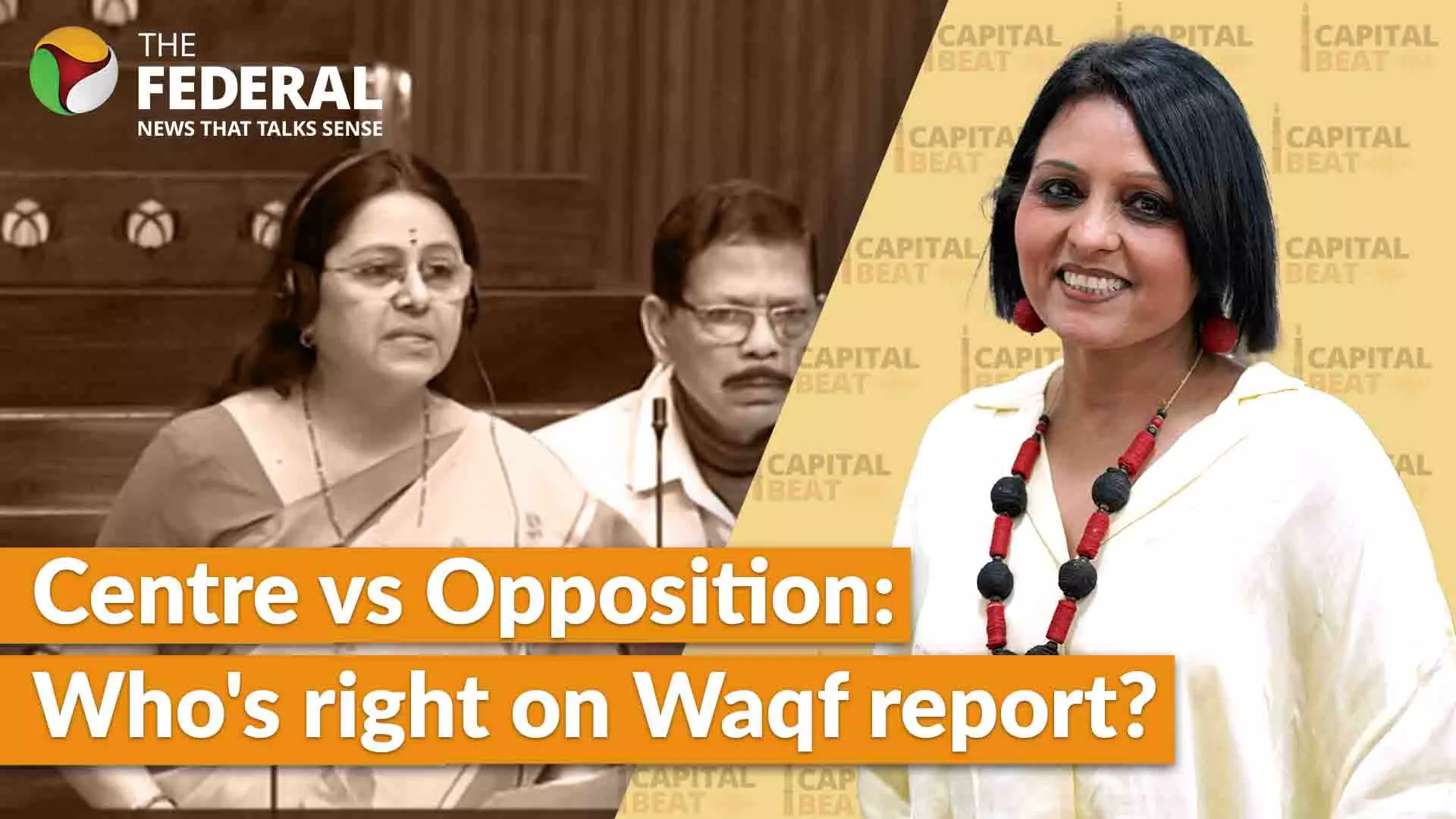
Ruckus in Rajya Sabha over Waqf report
Waqf JPC report | Ruckus over dissident notes: What happens next?
Uproar was witnessed in RS as Kharge claimed dissent notes were removed from the Waqf Bill report, while VP Dhankhar denied it. Who’s right, who’s wrong?

The latest episode of Capital Beat featured a heated discussion on the uproar in the Rajya Sabha over the Joint Parliamentary Committee (JPC) report on the Waqf Amendment Bill. Senior journalist and political commentator Javed Ansari, author Pushparaj Deshpande, and senior deputy editor of Frontline TK Rajalakshmi joined the discussion to analyse the controversy surrounding the bill and the parliamentary ruckus that ensued.
Dissent notes removed from JPC report
The Rajya Sabha witnessed dramatic scenes as opposition leader Mallikarjun Kharge accused the government of deleting dissent remarks from the JPC report before tabling it in the house. Calling it "condemnable" and "anti-democratic," Kharge urged Vice President Jagdeep Dhankhar to reject the report and send it back. He alleged that the opposition's concerns were deliberately ignored, branding the report "farzi" (fake) and accusing the government of excluding non-stakeholder statements.
Also read: Complete mockery of parliamentary traditions, farce: Congress slams functioning of Waqf panel
Javed Ansari, commenting on the issue, said, "I cannot instantly recall an instance where dissent notes have been either deleted, expunged, or not included at all. This modus operandi of the government reflects a confrontational approach that does not accommodate dissent or contrarian views."
Government defends its position
Union Minister Kiren Rijiju countered the opposition's claims, stating that their conduct was "condemnable" and accused them of misleading the house. Despite the heated exchanges, the opposition walked out of the Rajya Sabha in protest. Vice President Jagdeep Dhankhar added fuel to the fire by reprimanding opposition members, reportedly telling them to "keep it shut."
In response to the controversy, a closed-door meeting took place between the presiding officer, the leader of the opposition, and Parliamentary Affairs Minister Kiren Rijiju. Following the discussions, the government agreed to include most of the dissent notes tabled by the opposition, except for portions deemed inappropriate by the speaker and chairman.
Why remove dissent notes in first place?
Pushparaj Deshpande questioned the intent behind initially removing the dissent notes. He remarked, "A JPC's report is not binding on the government, so why create an illusion of unanimity? Why exclude opposition remarks only to later agree to include them?" He also pointed out that the government's actions are part of a larger trend where parliamentary scrutiny has significantly reduced in recent years.
Watch | Discussion I 'Waqf Bill will have a devastating effect on Muslims'
TK Rajalakshmi echoed this sentiment, adding, "This has been the standard modus operandi of the BJP—to dismiss dissent as anti-national. The real question is, why was the opposition not given its rightful space in the report from the outset?"
Impact on parliamentary democracy
The controversy over the JPC report on the Waqf Amendment Bill raises concerns about the state of parliamentary democracy in India. The opposition termed the exclusion of dissenting voices as a serious breach of democratic norms, while the government dismissed the claims as political posturing.
Pushparaj Deshpande called it a failure of parliamentary management, stating, "The BJP has mastered legislative dog-whistling. They create traps for the opposition, and instead of tackling these issues ideologically, the opposition falls into procedural wrangling."
What lies ahead?
With the government agreeing to include the dissent notes, the bill is likely to be passed given the BJP's majority in both houses. However, as Javed Ansari warned, "This bill will have serious implications outside Parliament. There is a strong sense of anguish among the minority community, and there will be consequences."
The larger question remains—will this issue escalate into a legal battle? Many experts predict that the bill could be challenged in court, where dissenting notes from the JPC report might play a critical role in judicial proceedings.
Also read | UP: Waqf Board’s 2018 letter staking claim to 119-yr-old college goes viral
As the debate rages on, the political ramifications of the Waqf Amendment Bill and the events in Parliament will likely resonate in upcoming state elections. Whether the bill leads to electoral gains for the BJP or backlash from affected communities remains to be seen.
The content above has been generated using a fine-tuned AI model. To ensure accuracy, quality, and editorial integrity, we employ a Human-In-The-Loop (HITL) process. While AI assists in creating the initial draft, our experienced editorial team carefully reviews, edits, and refines the content before publication. At The Federal, we combine the efficiency of AI with the expertise of human editors to deliver reliable and insightful journalism.

